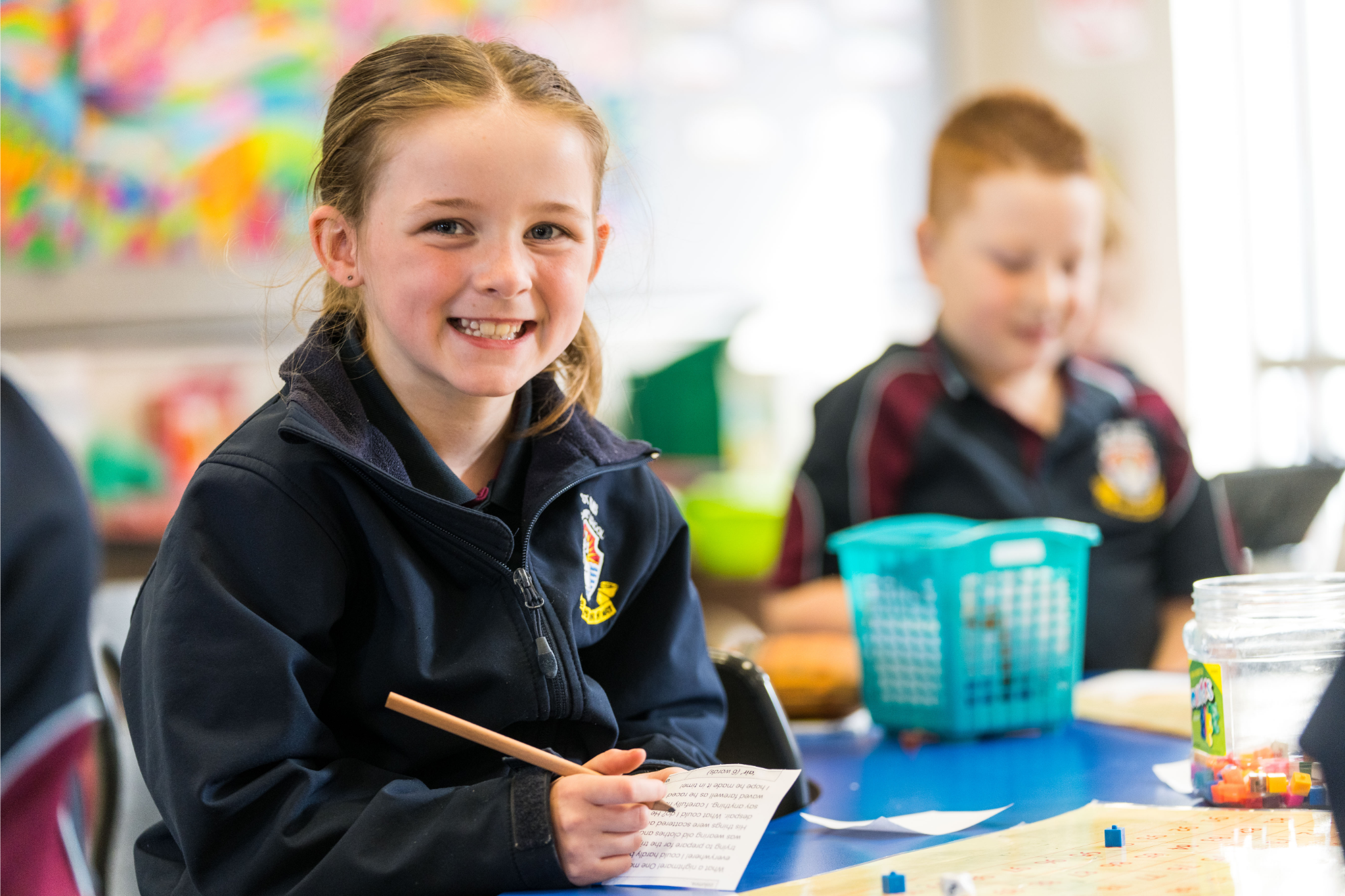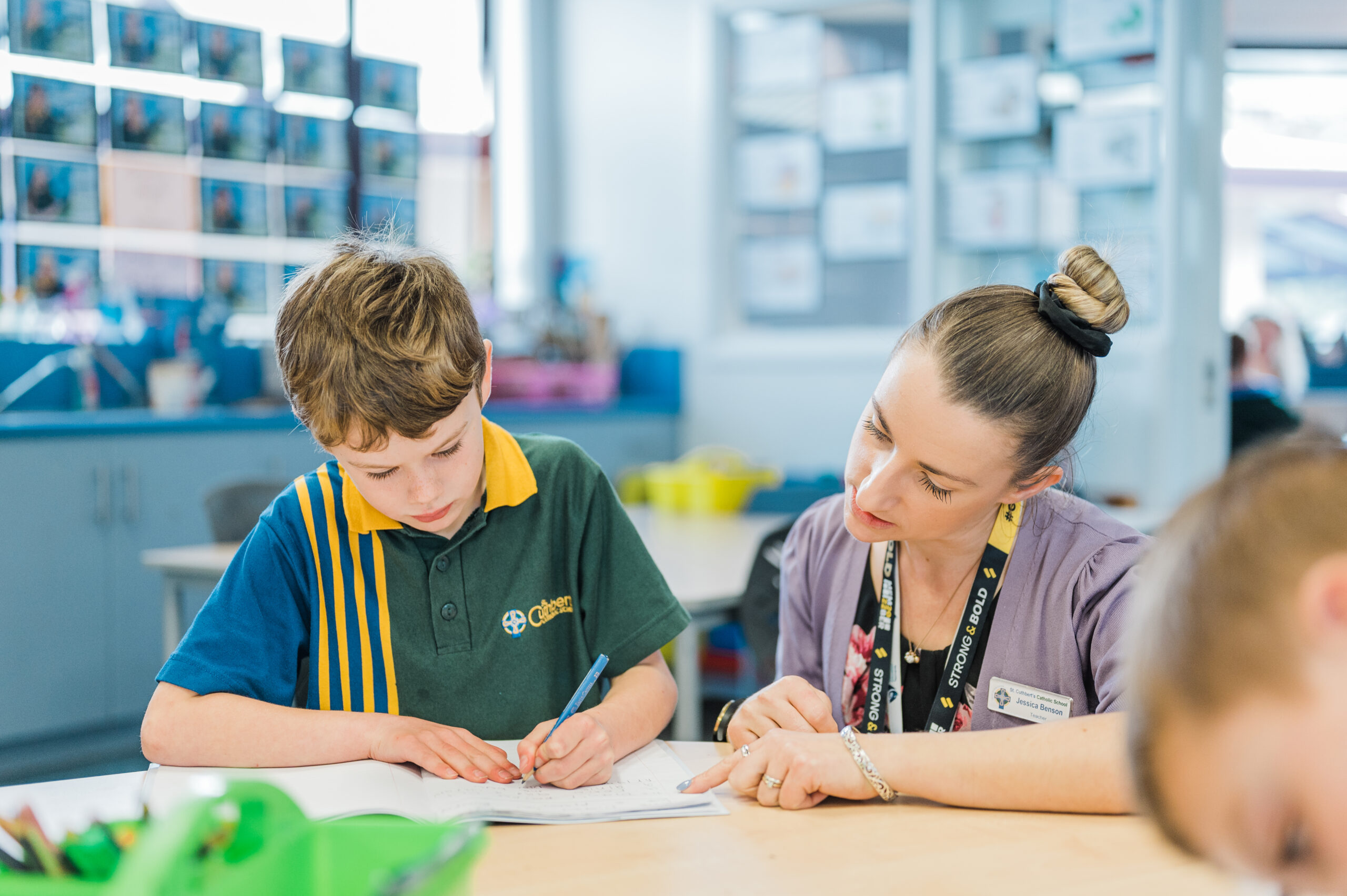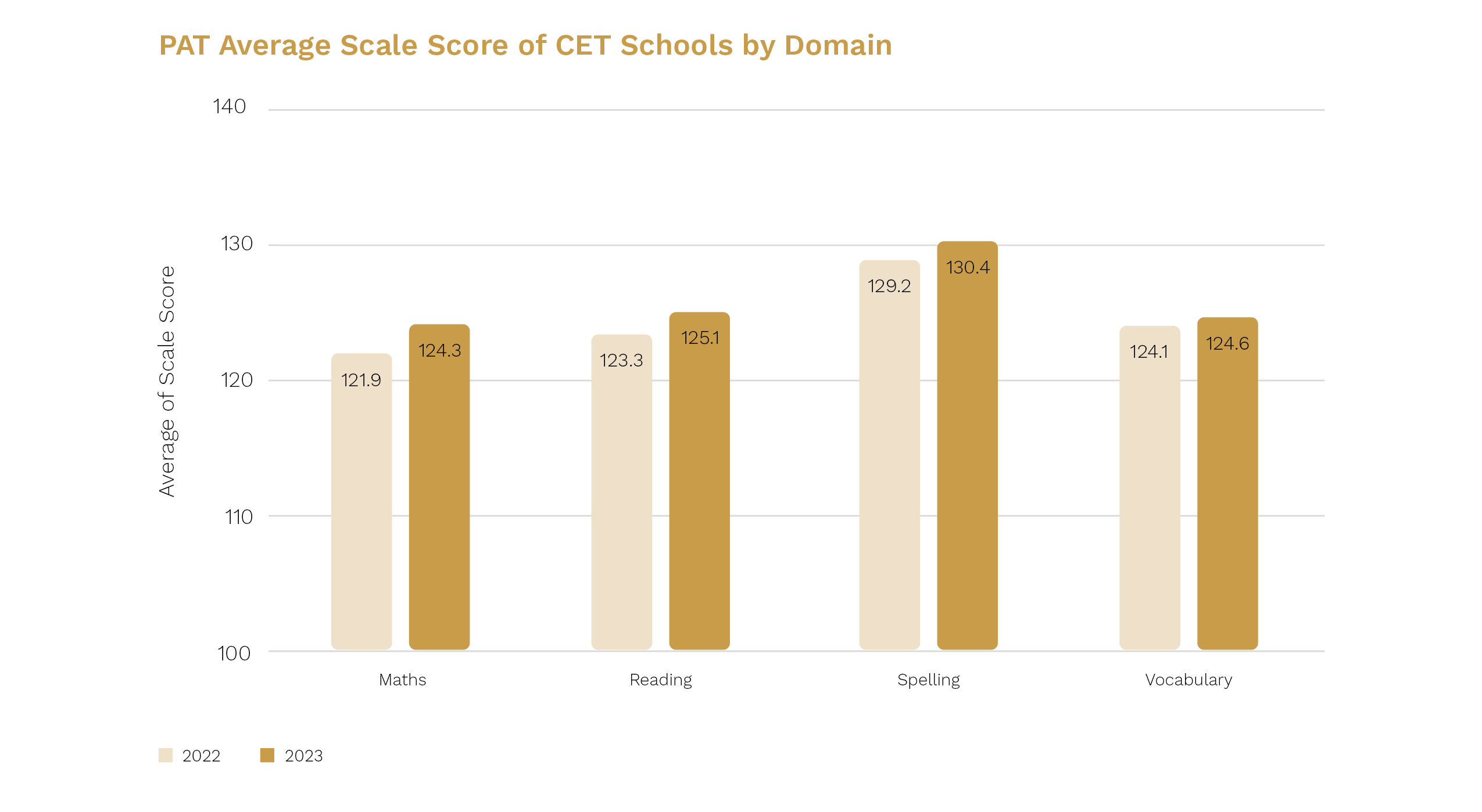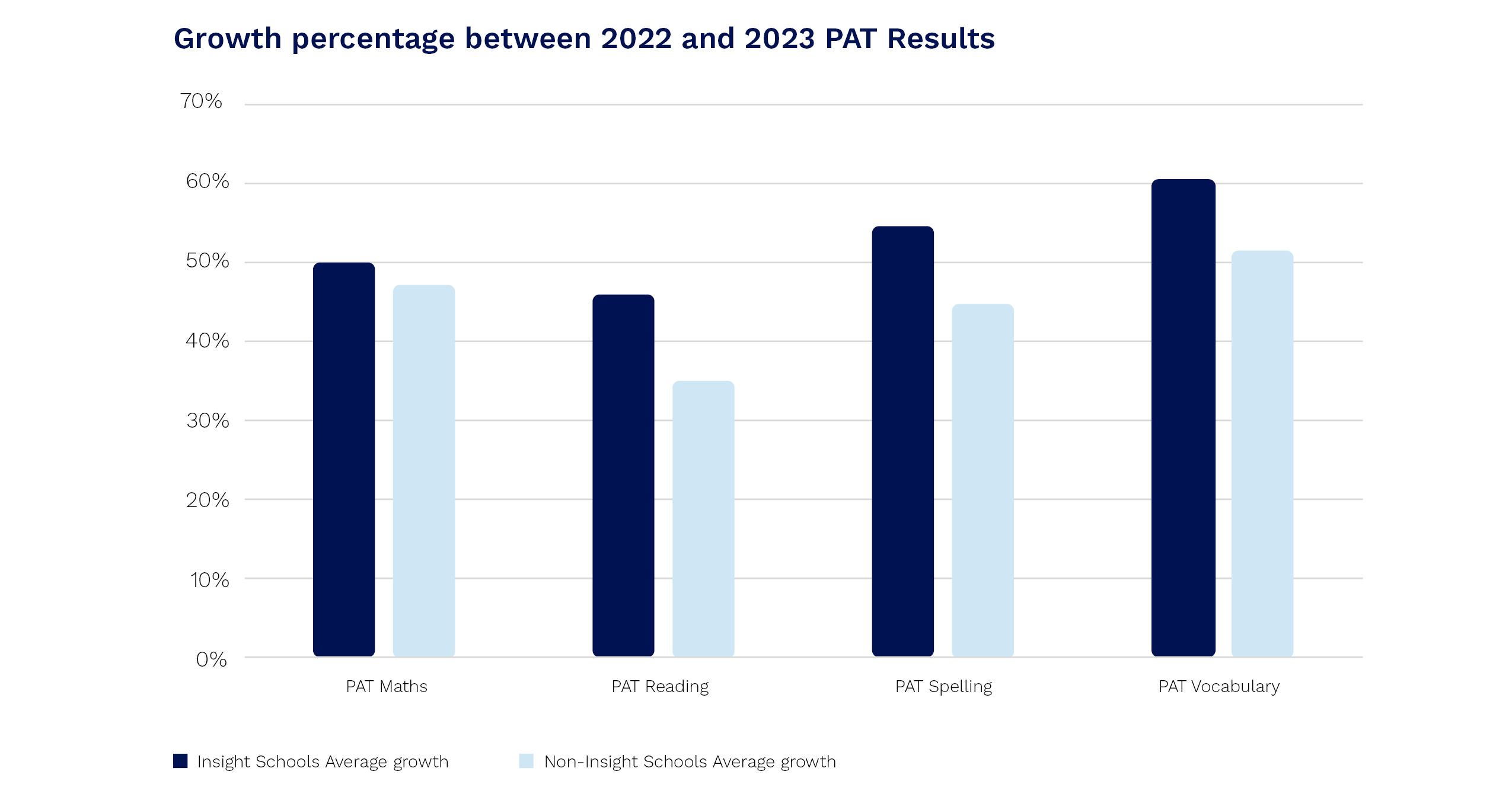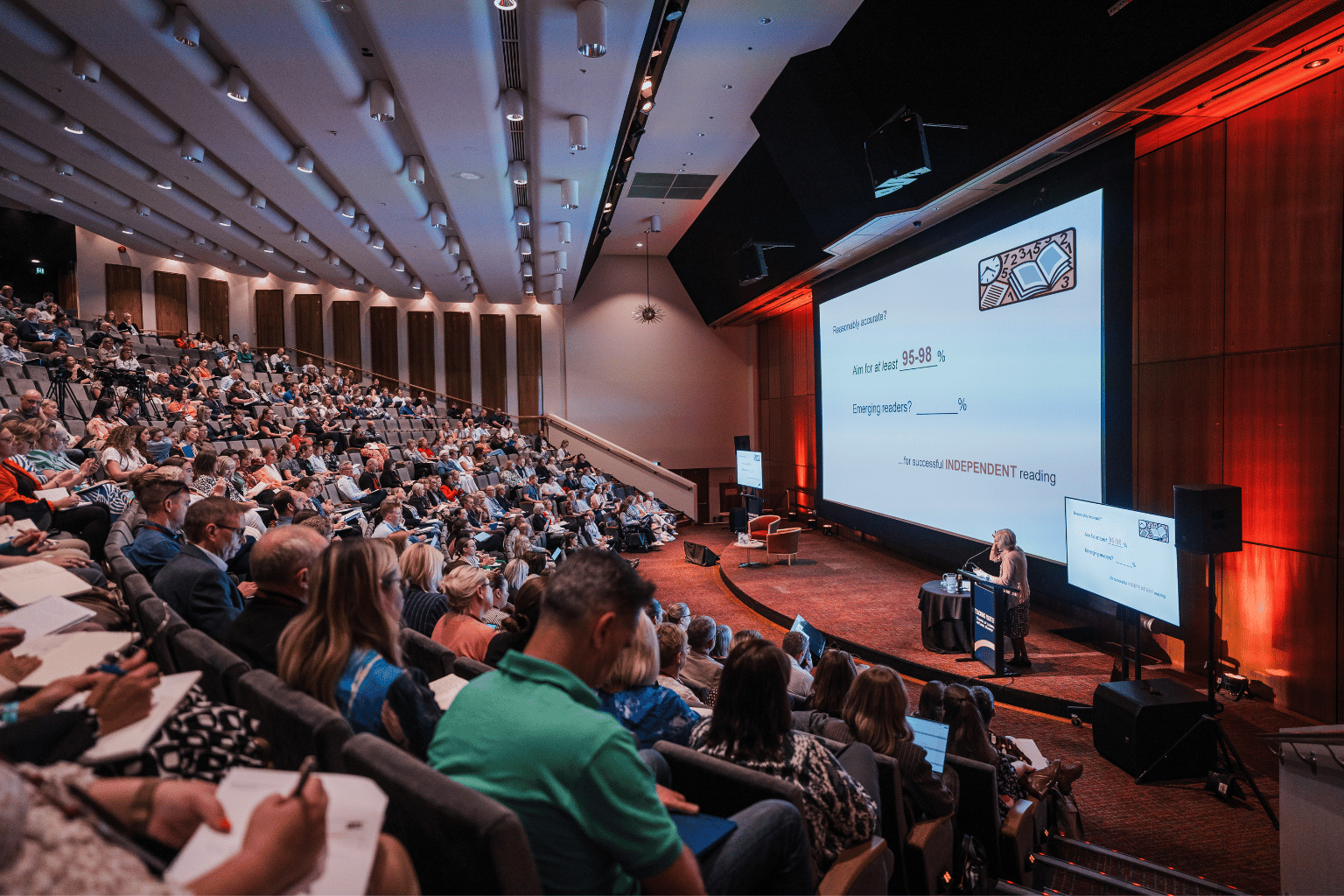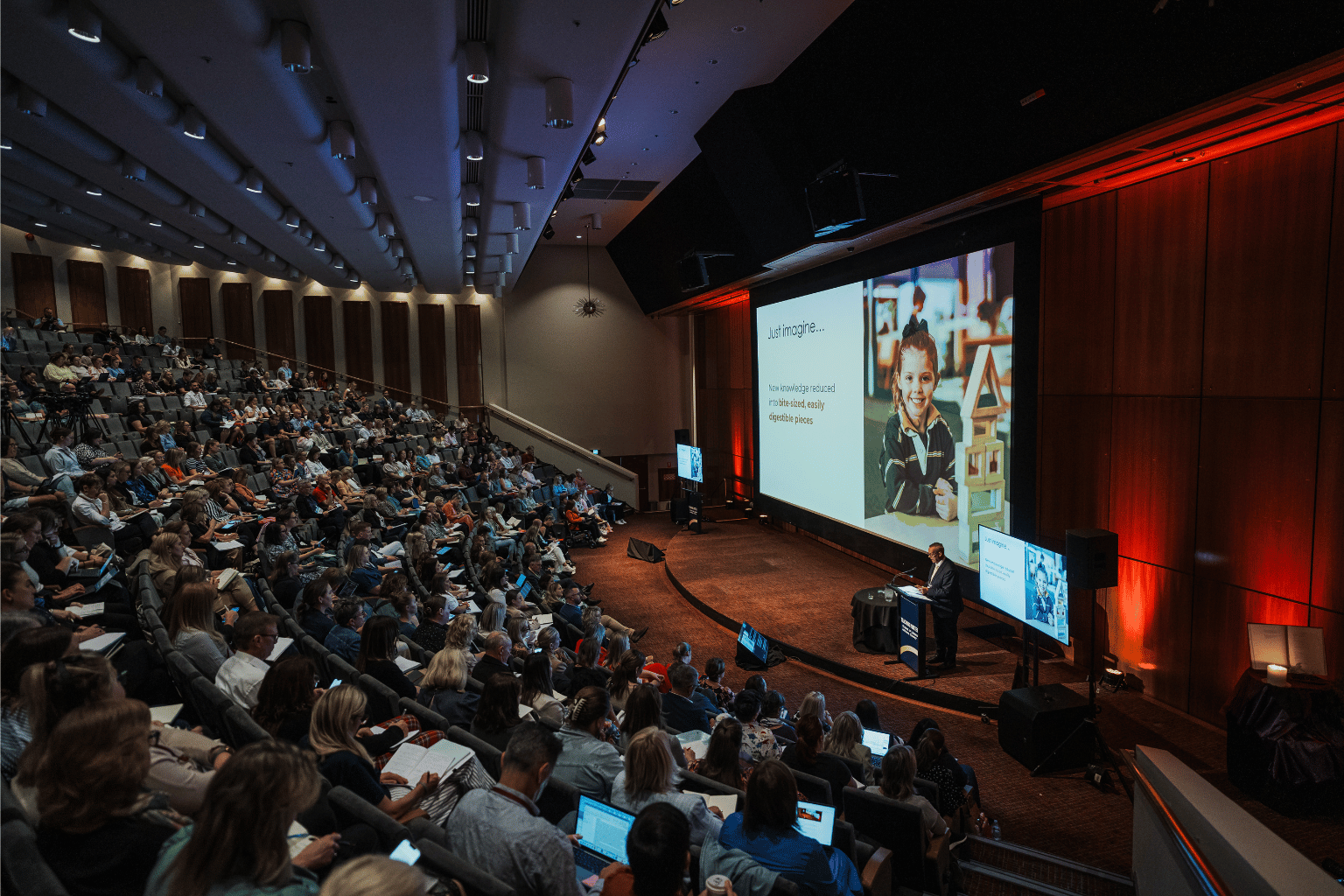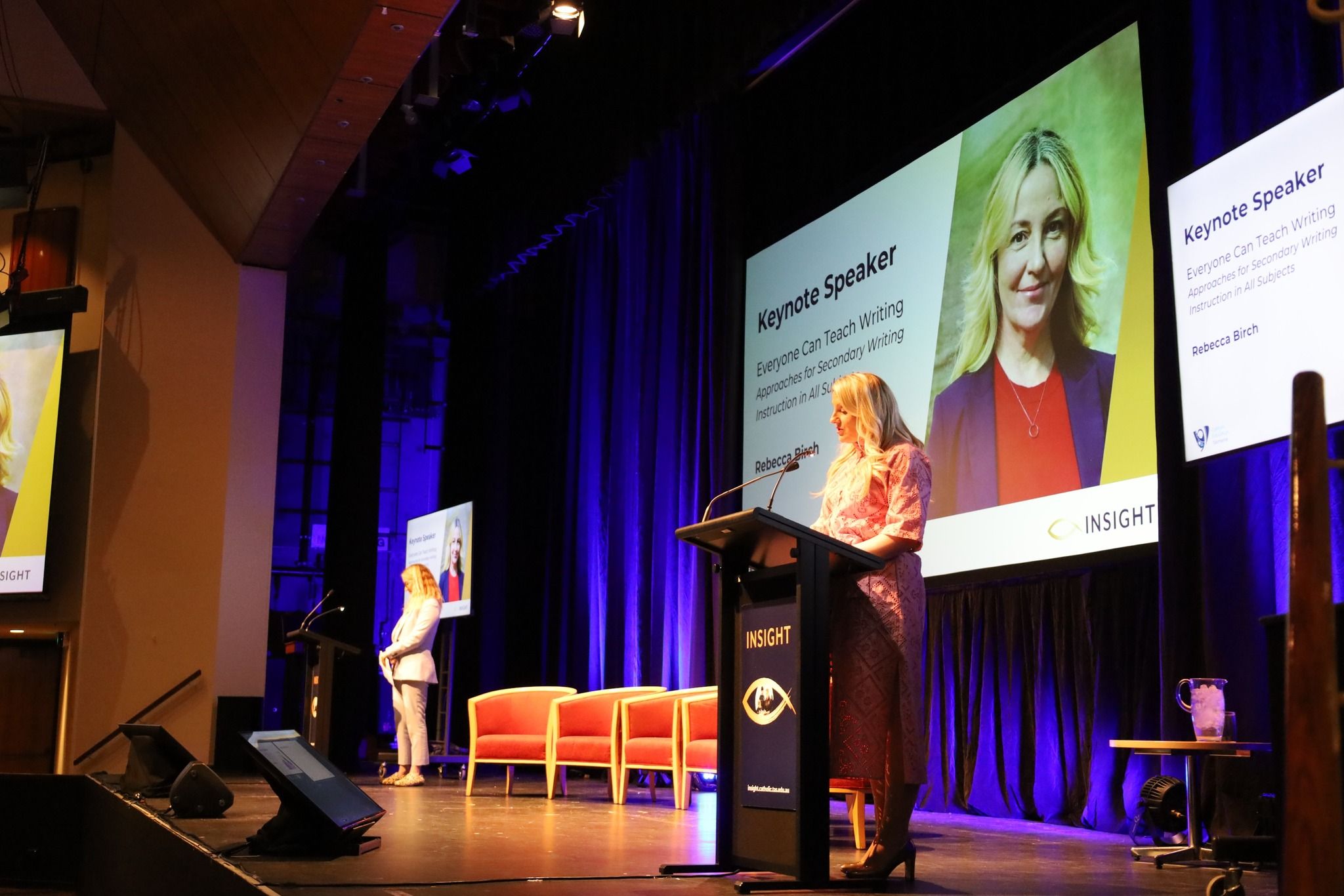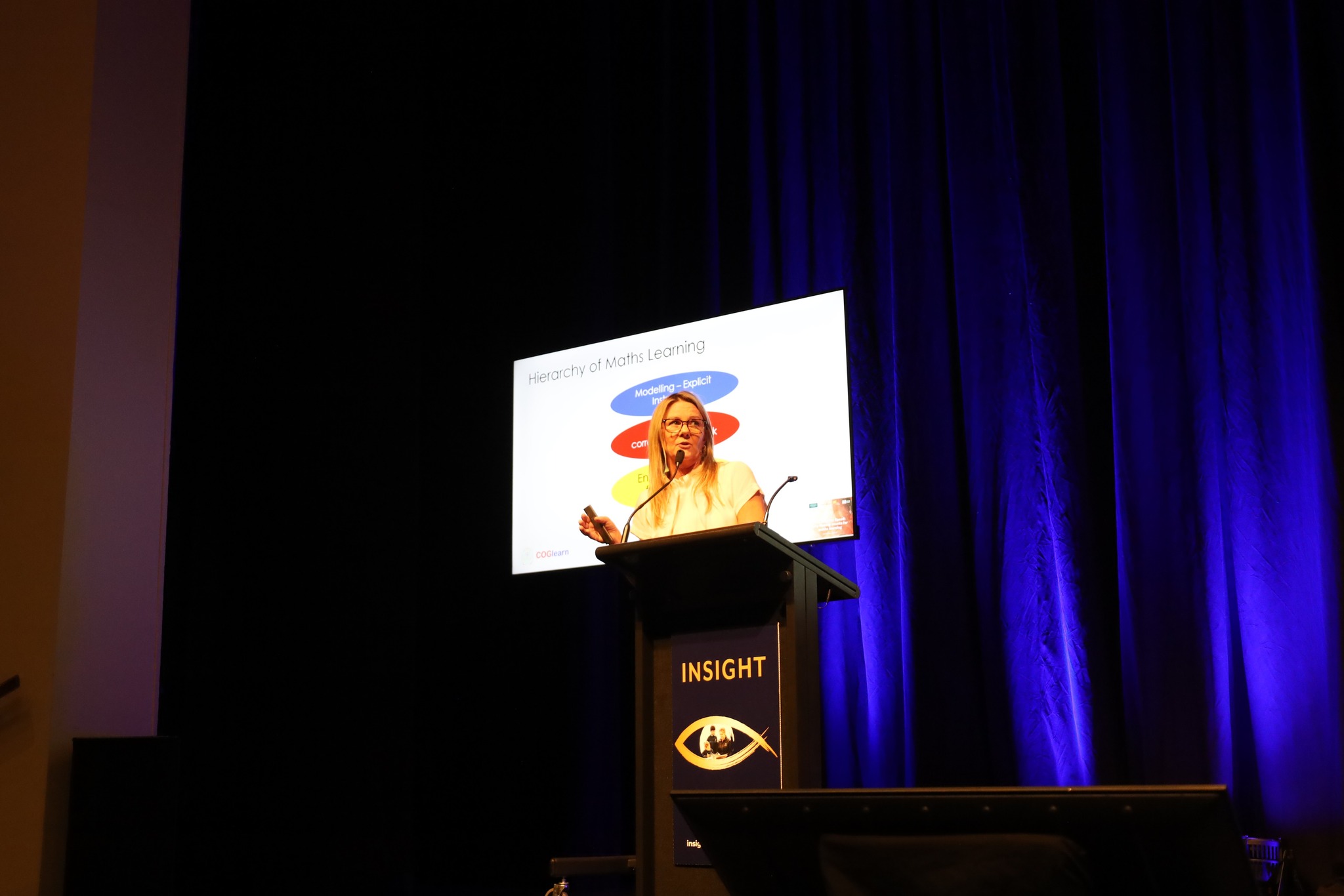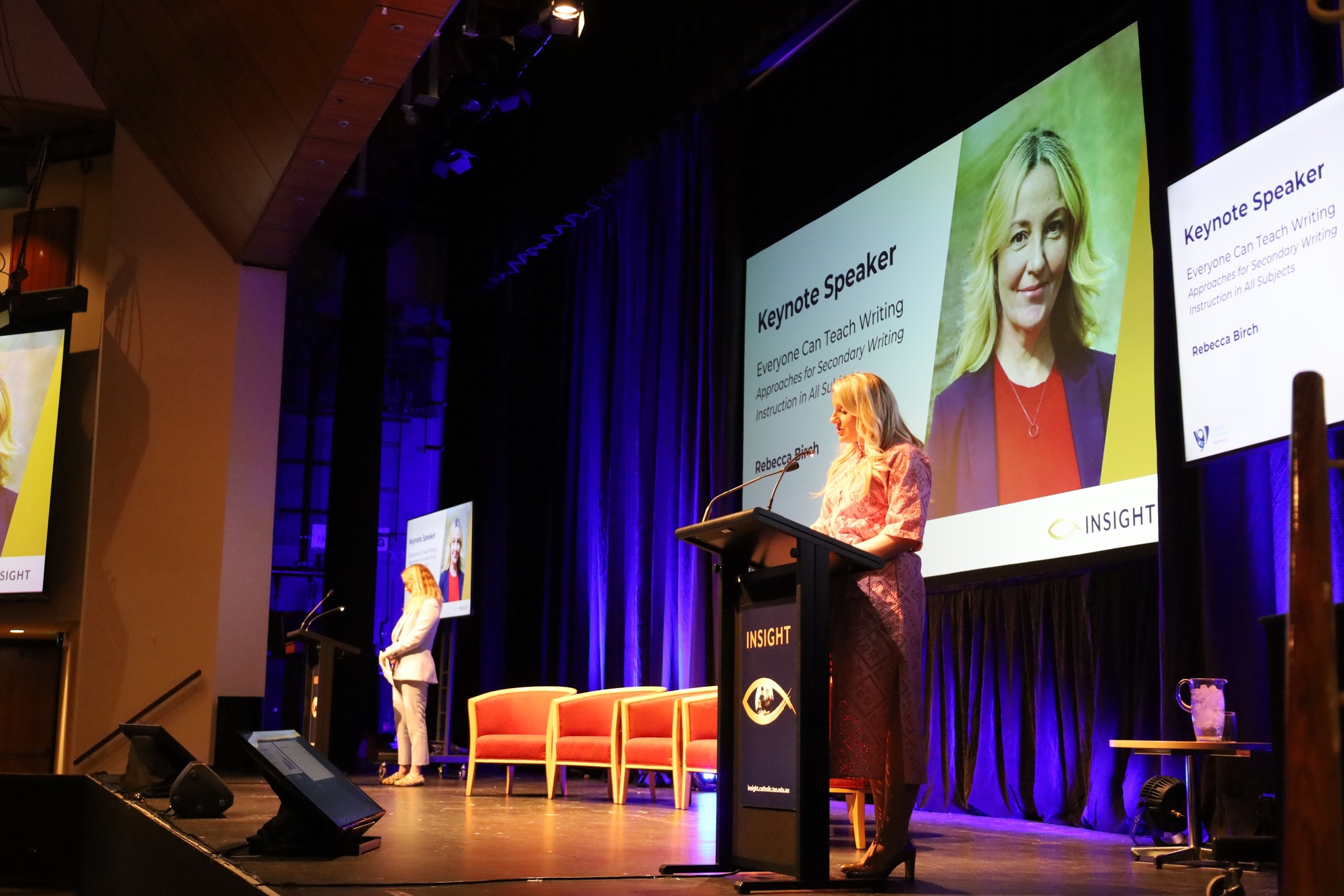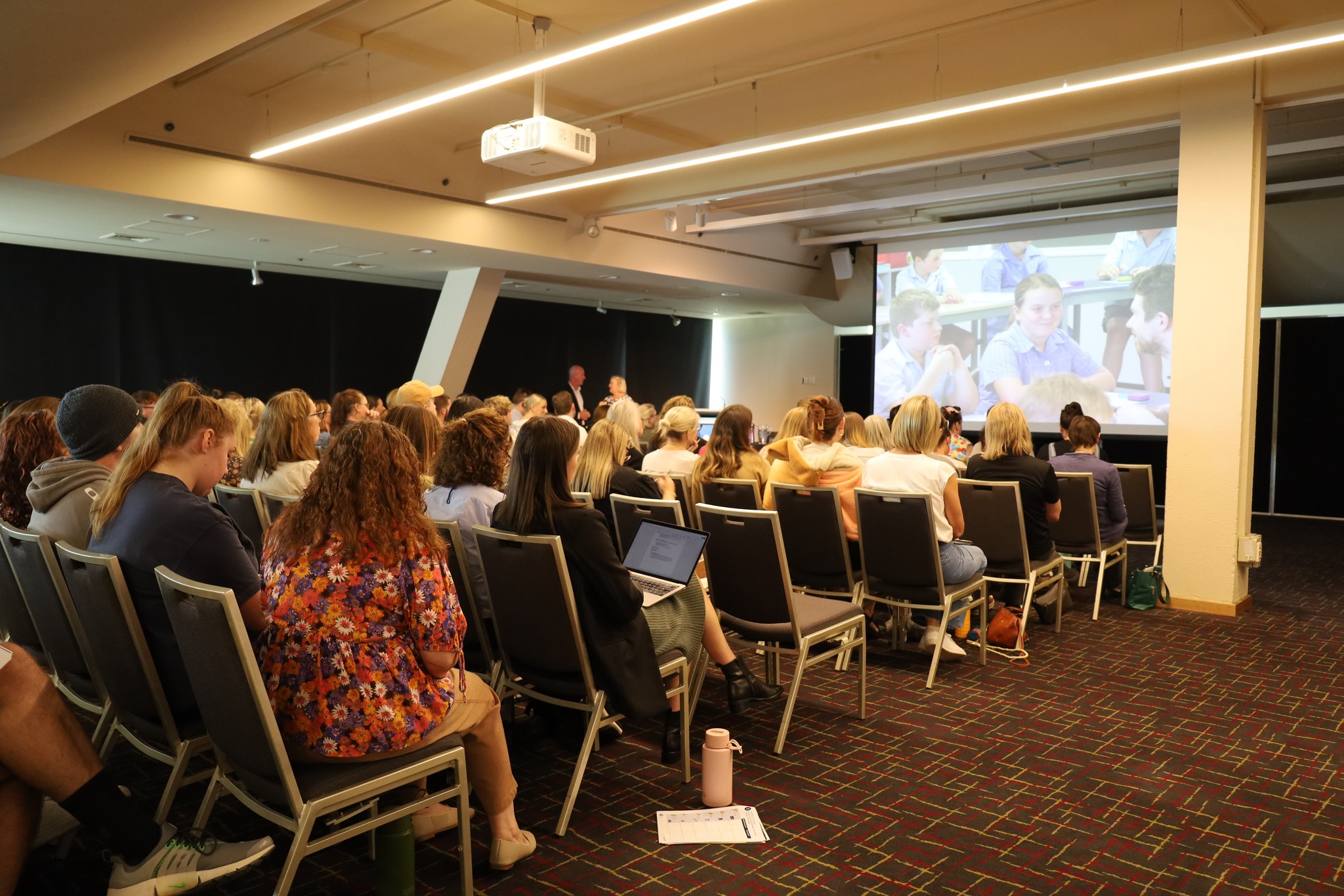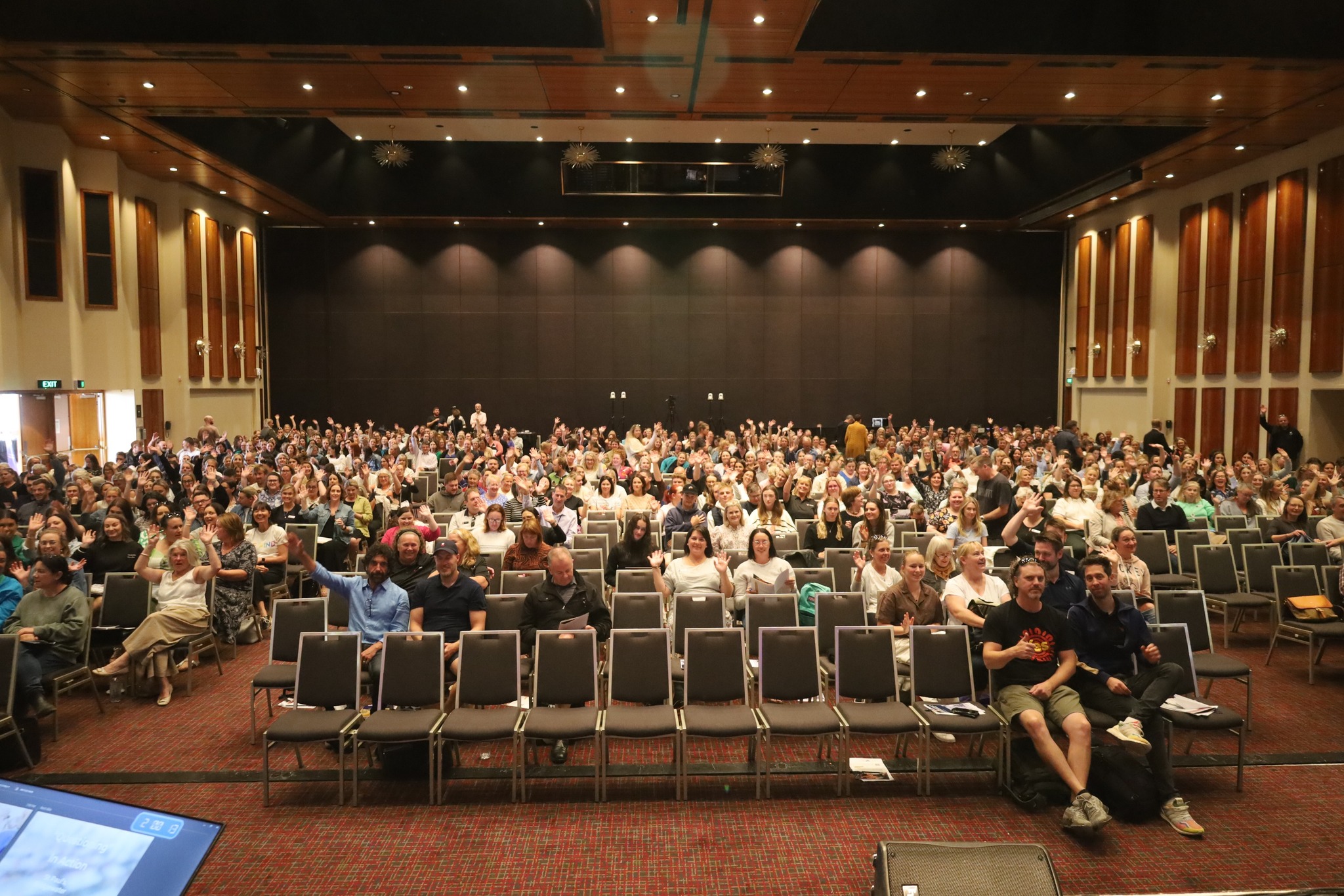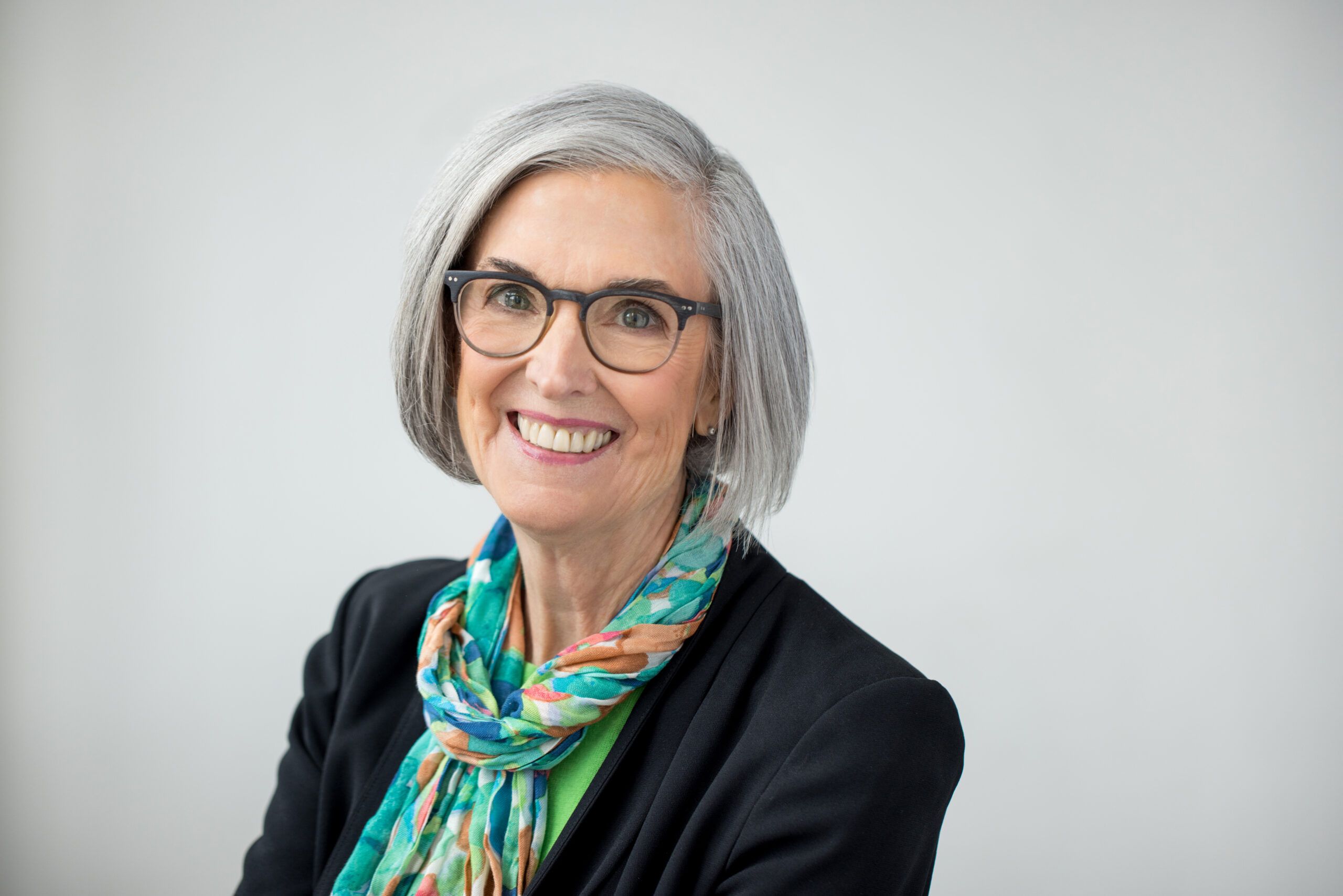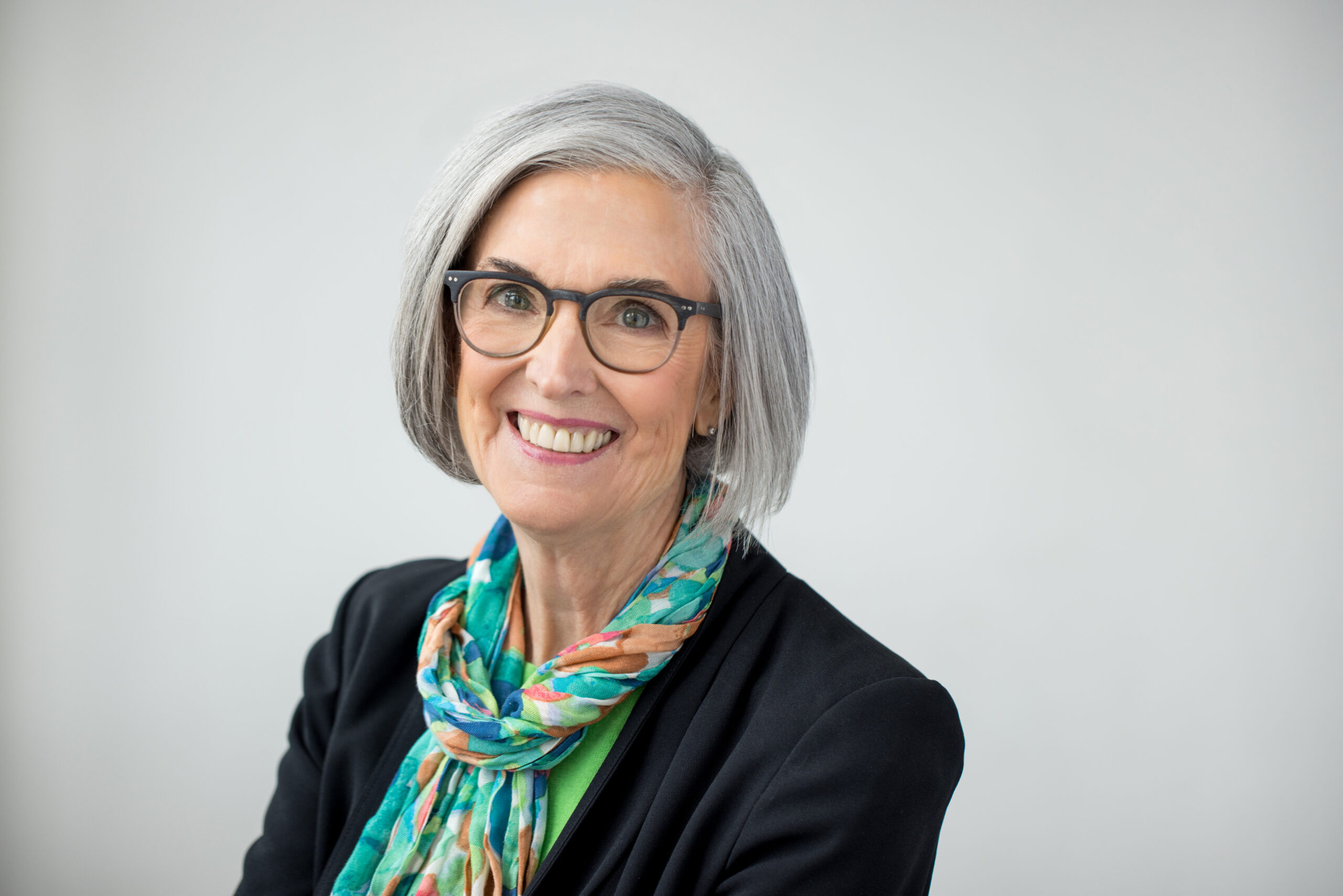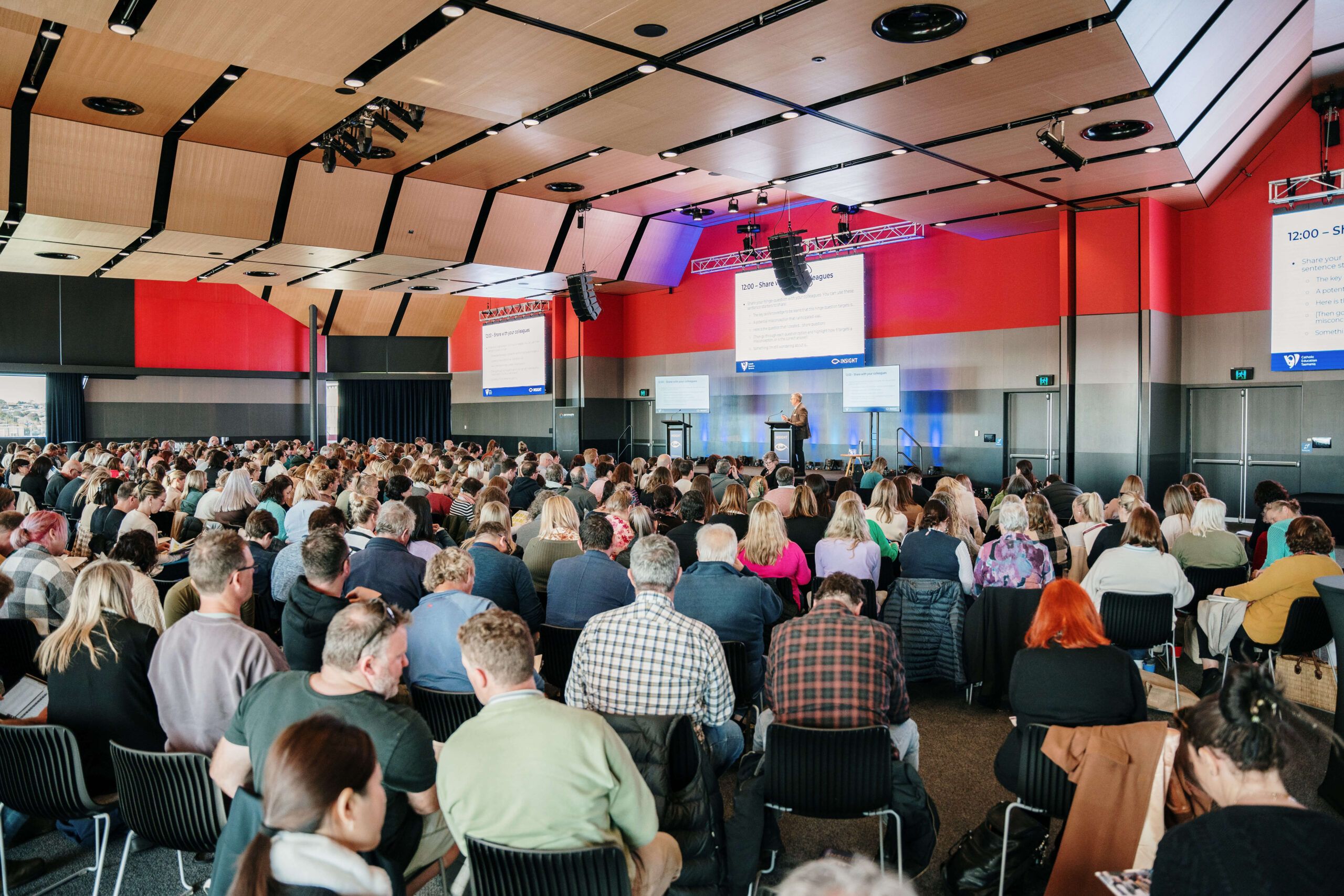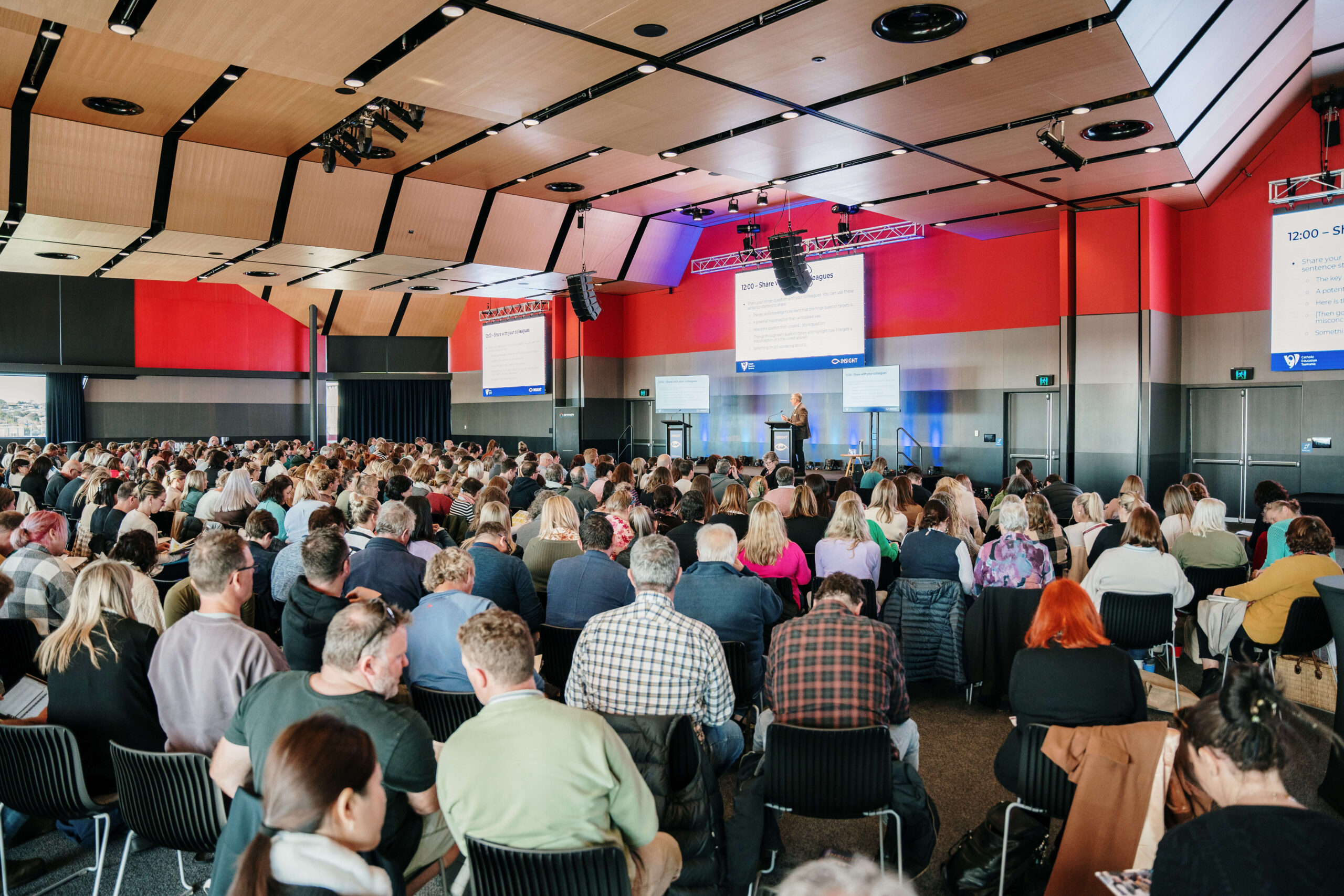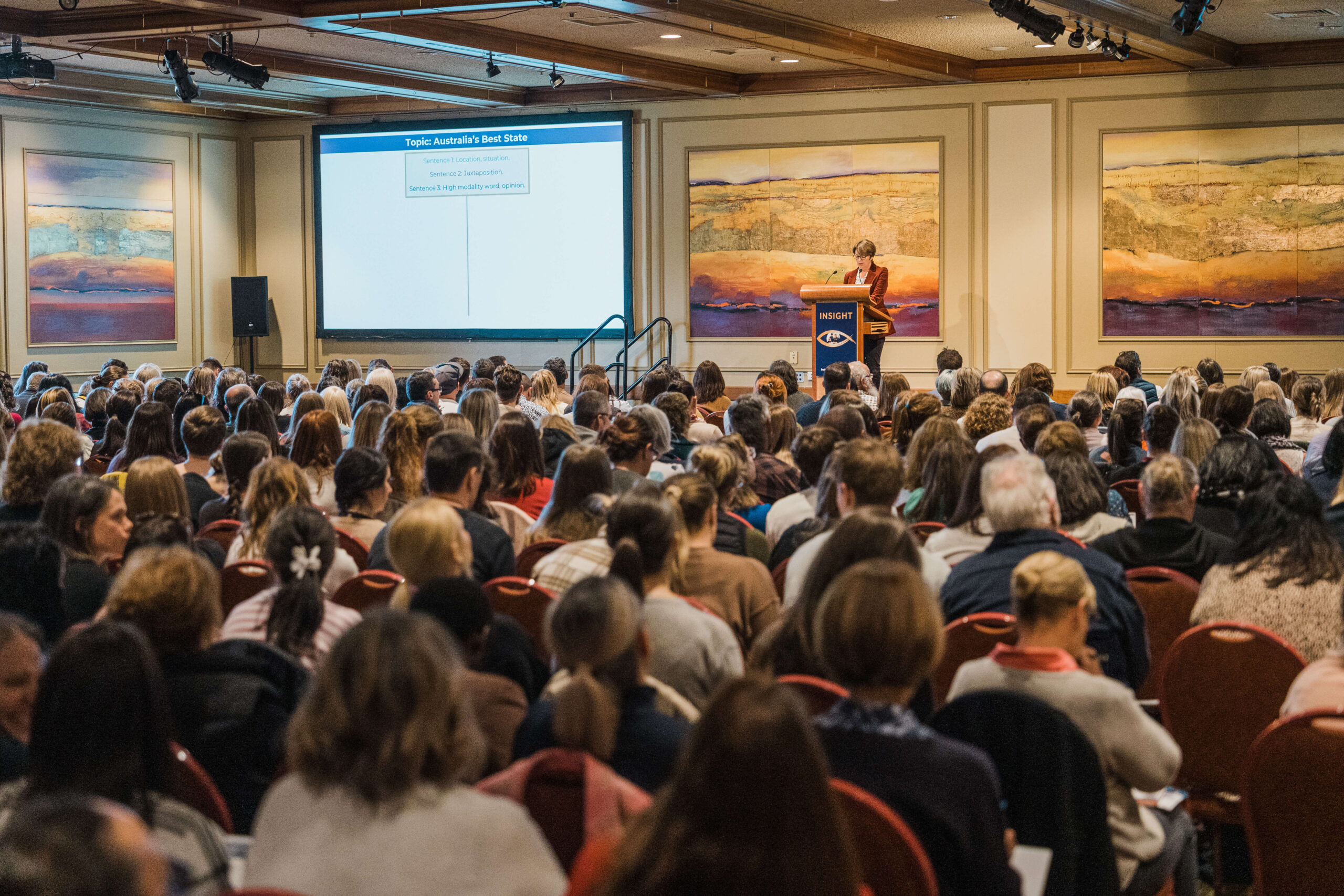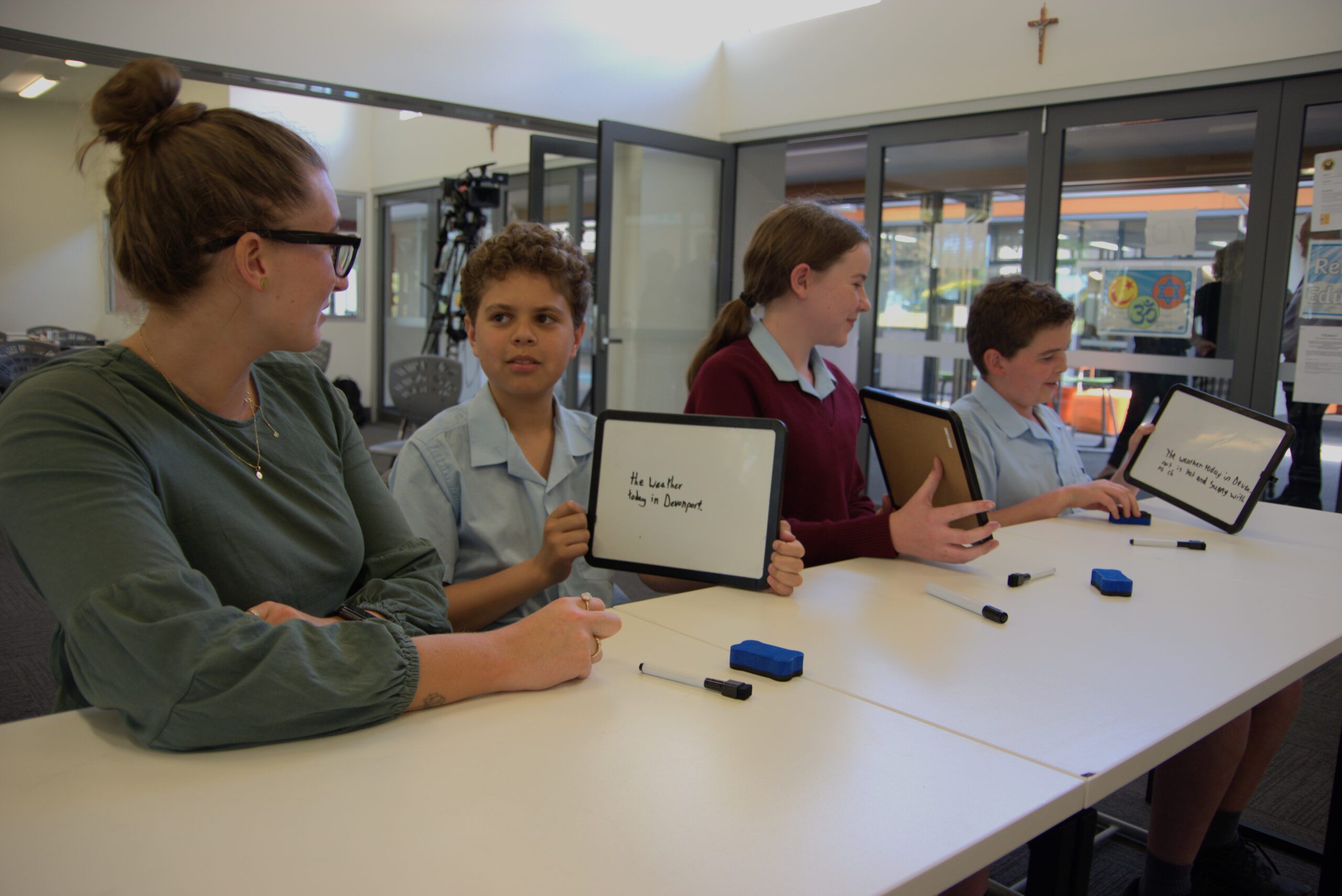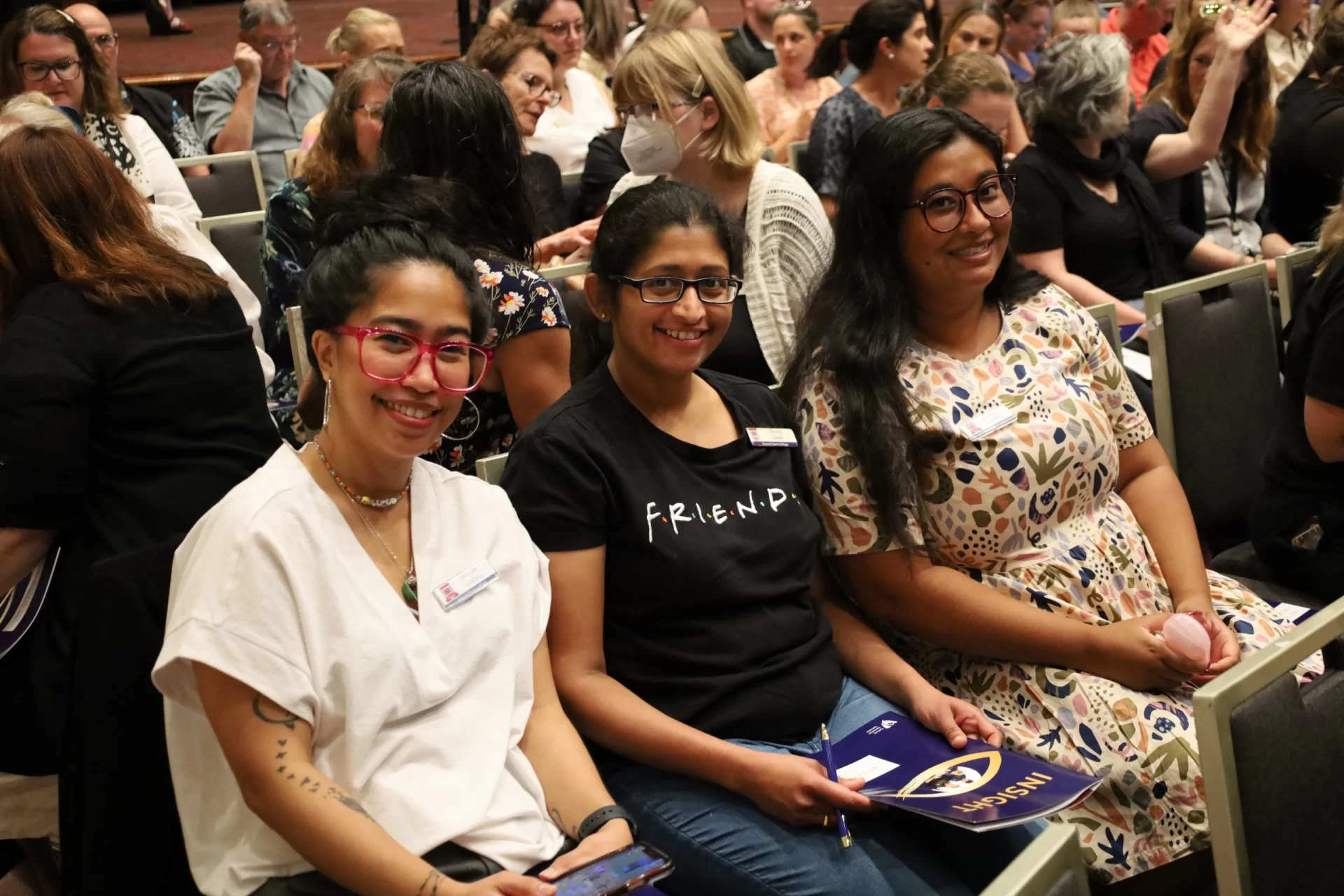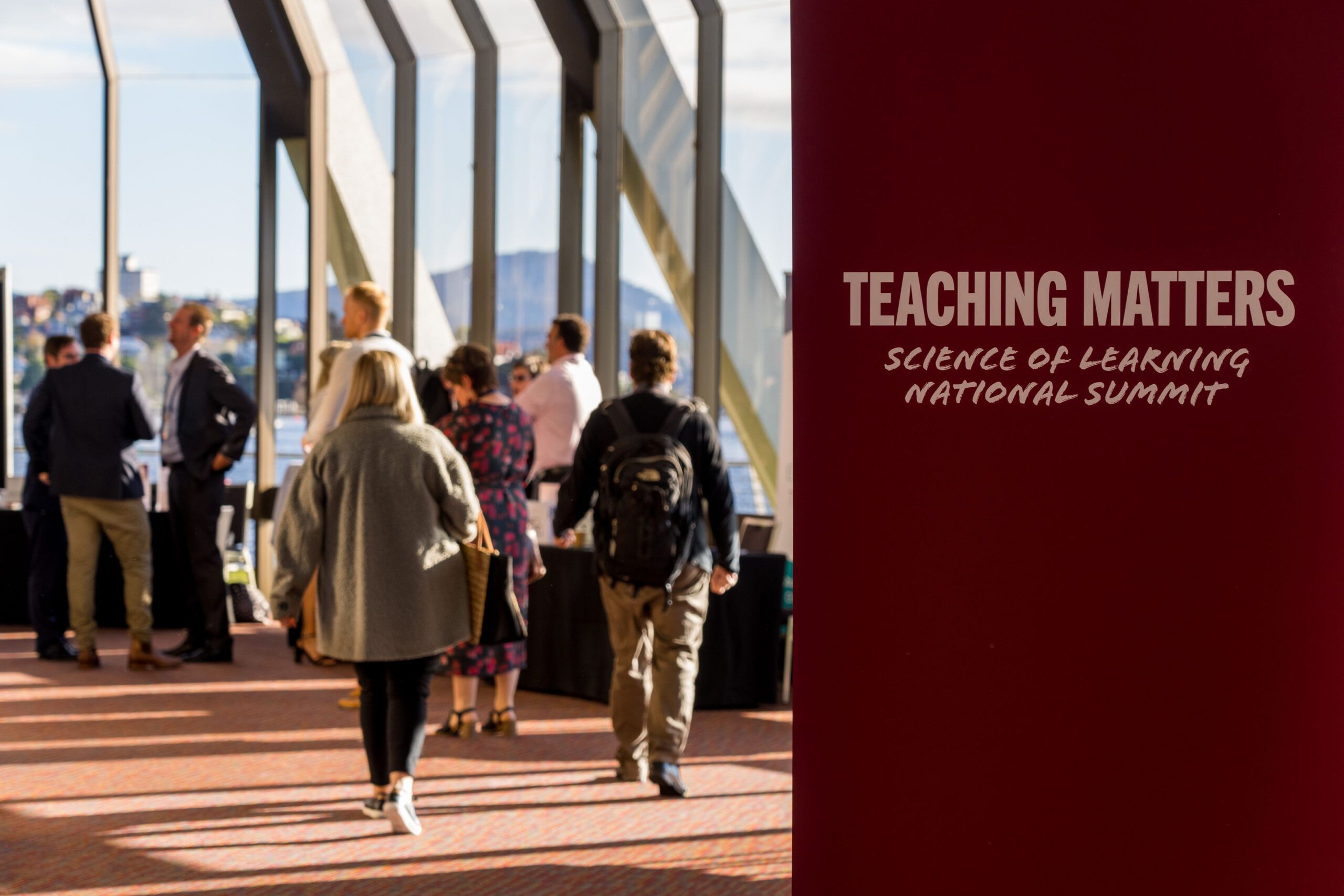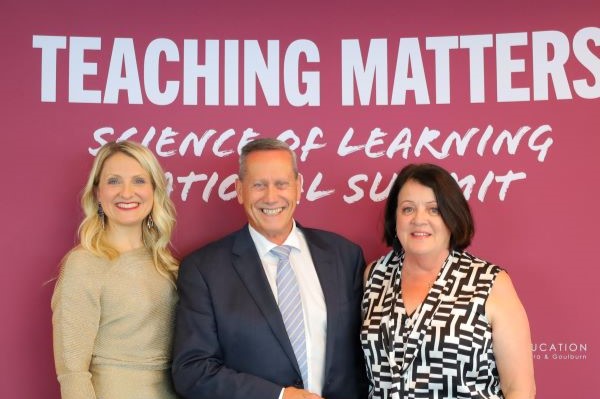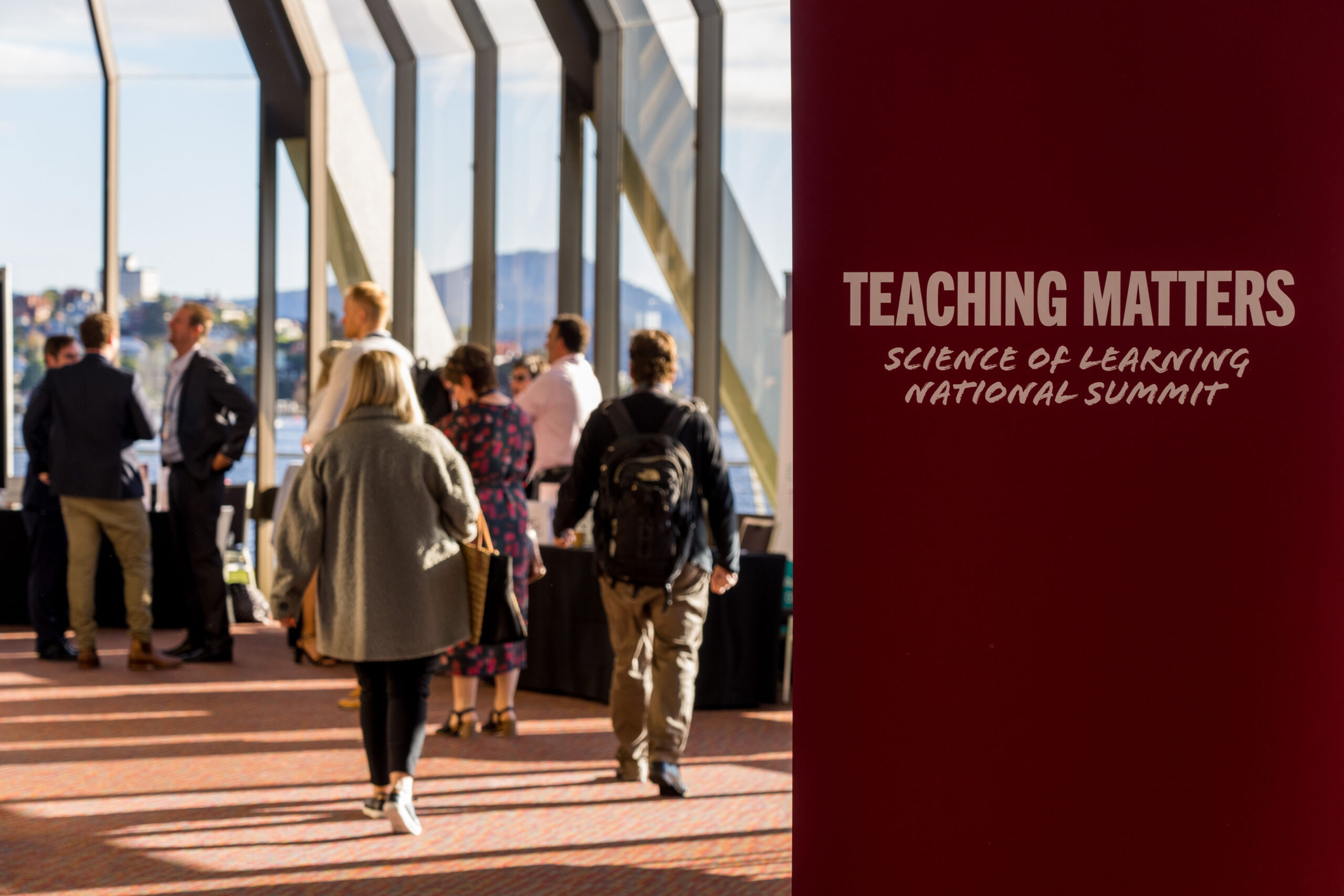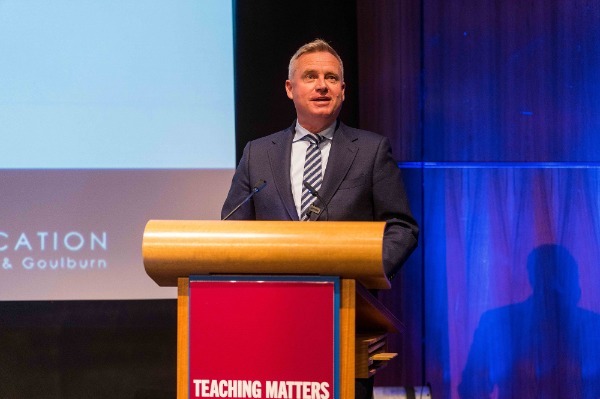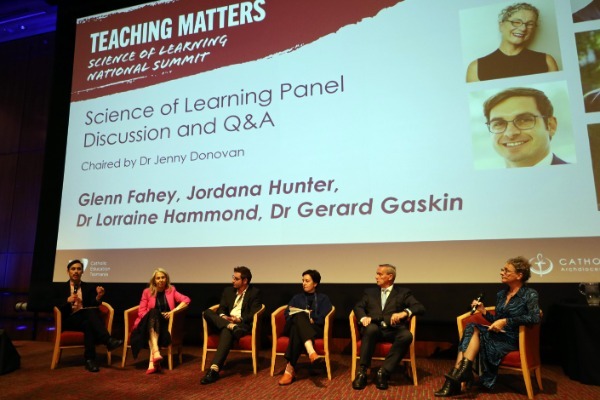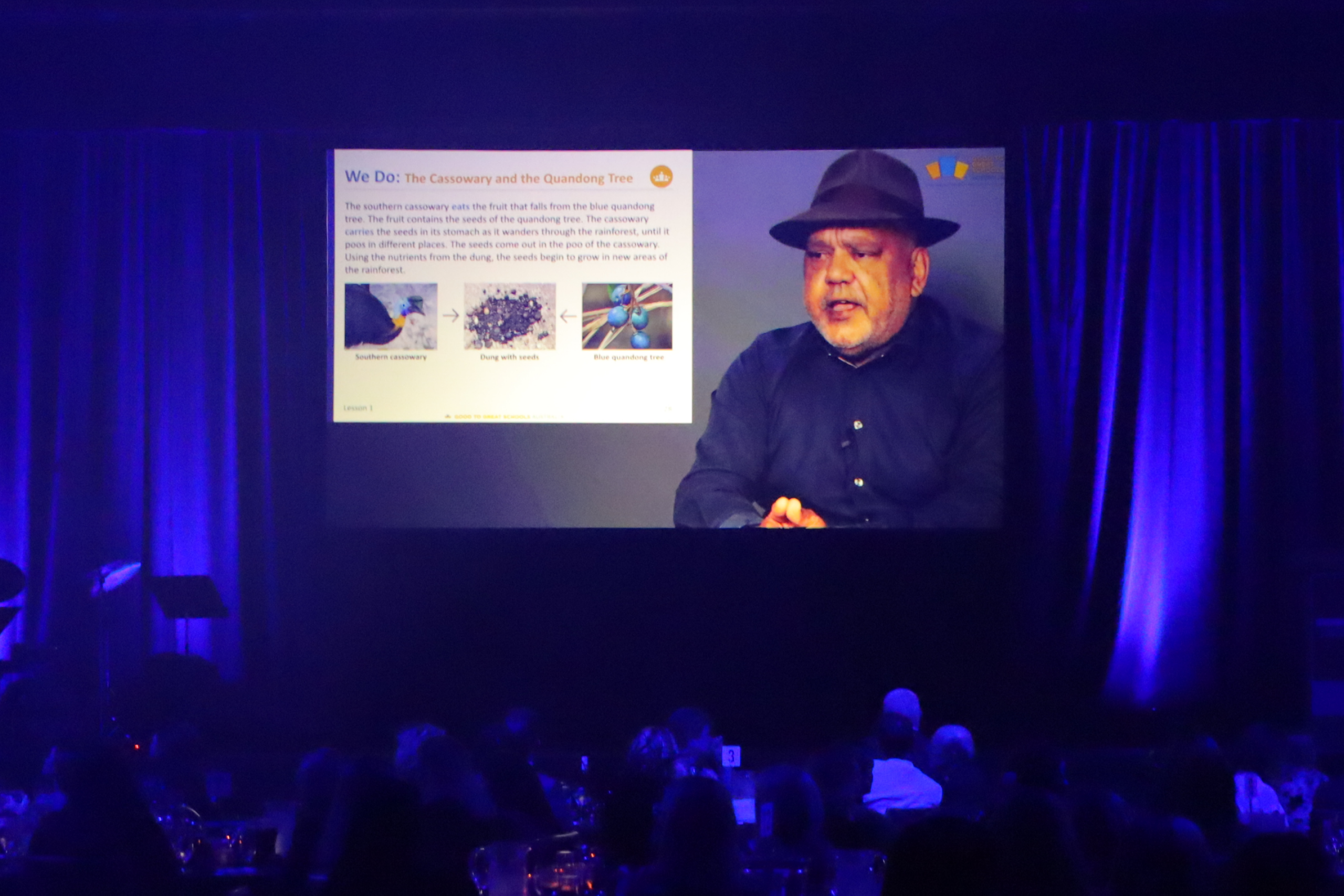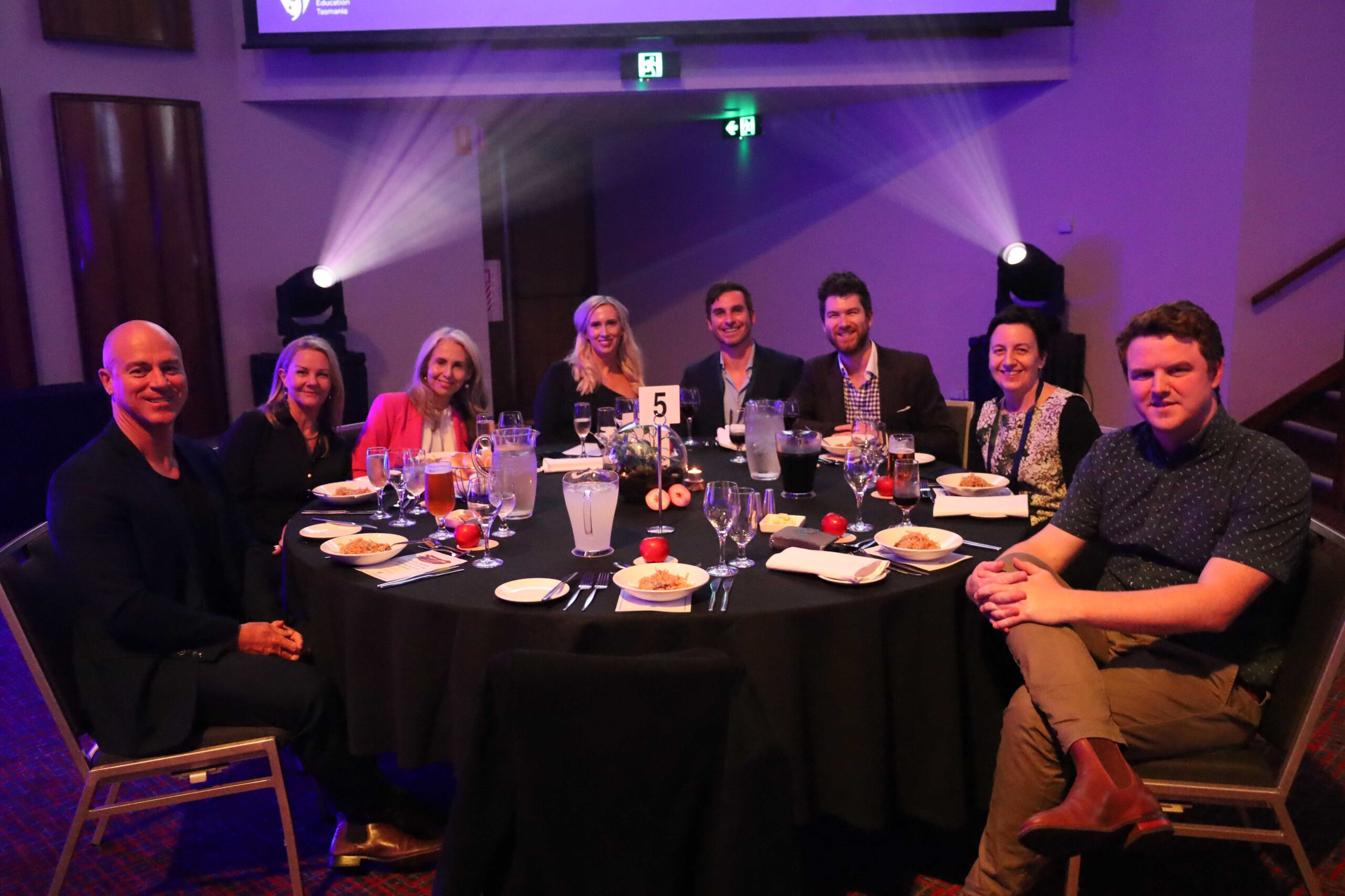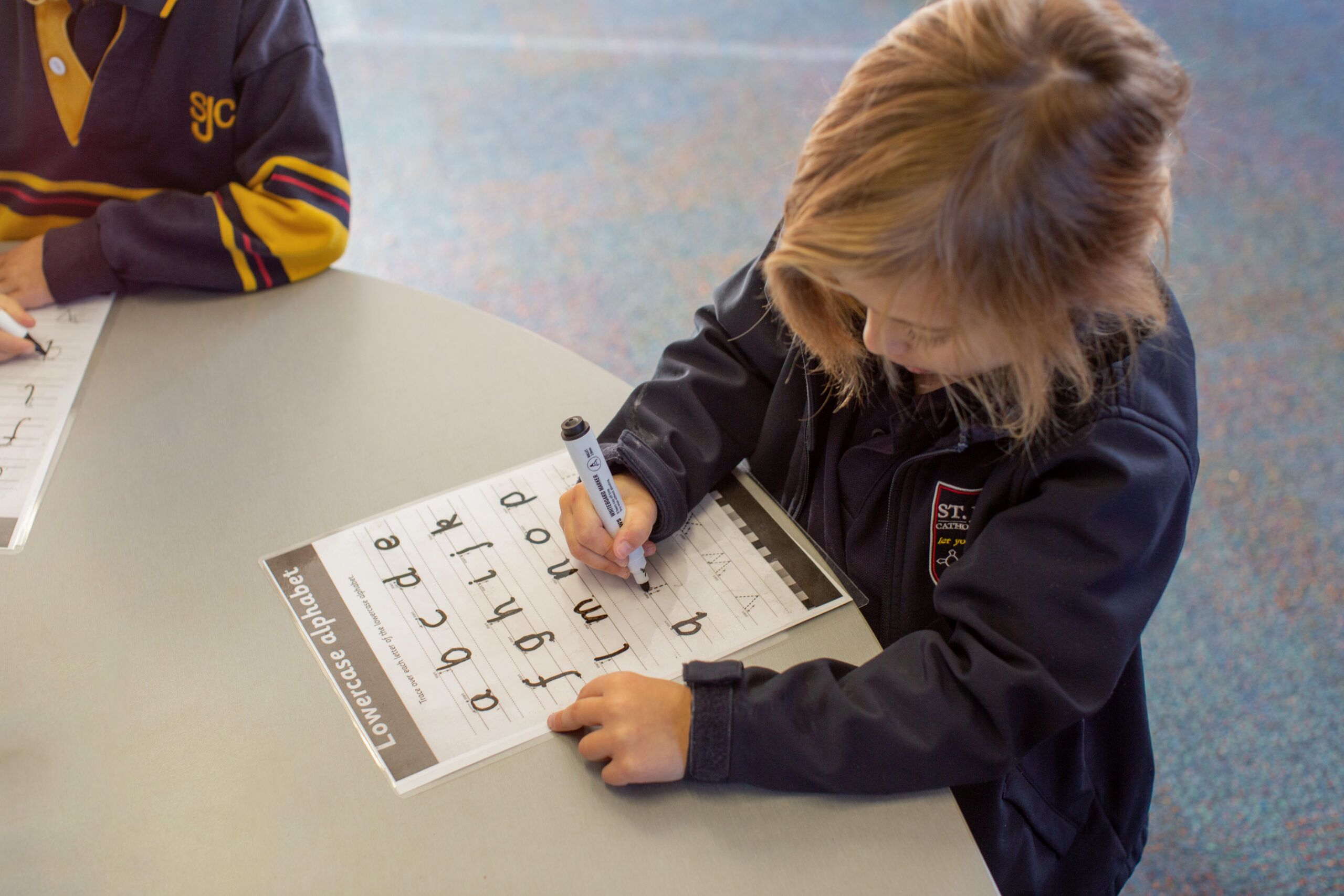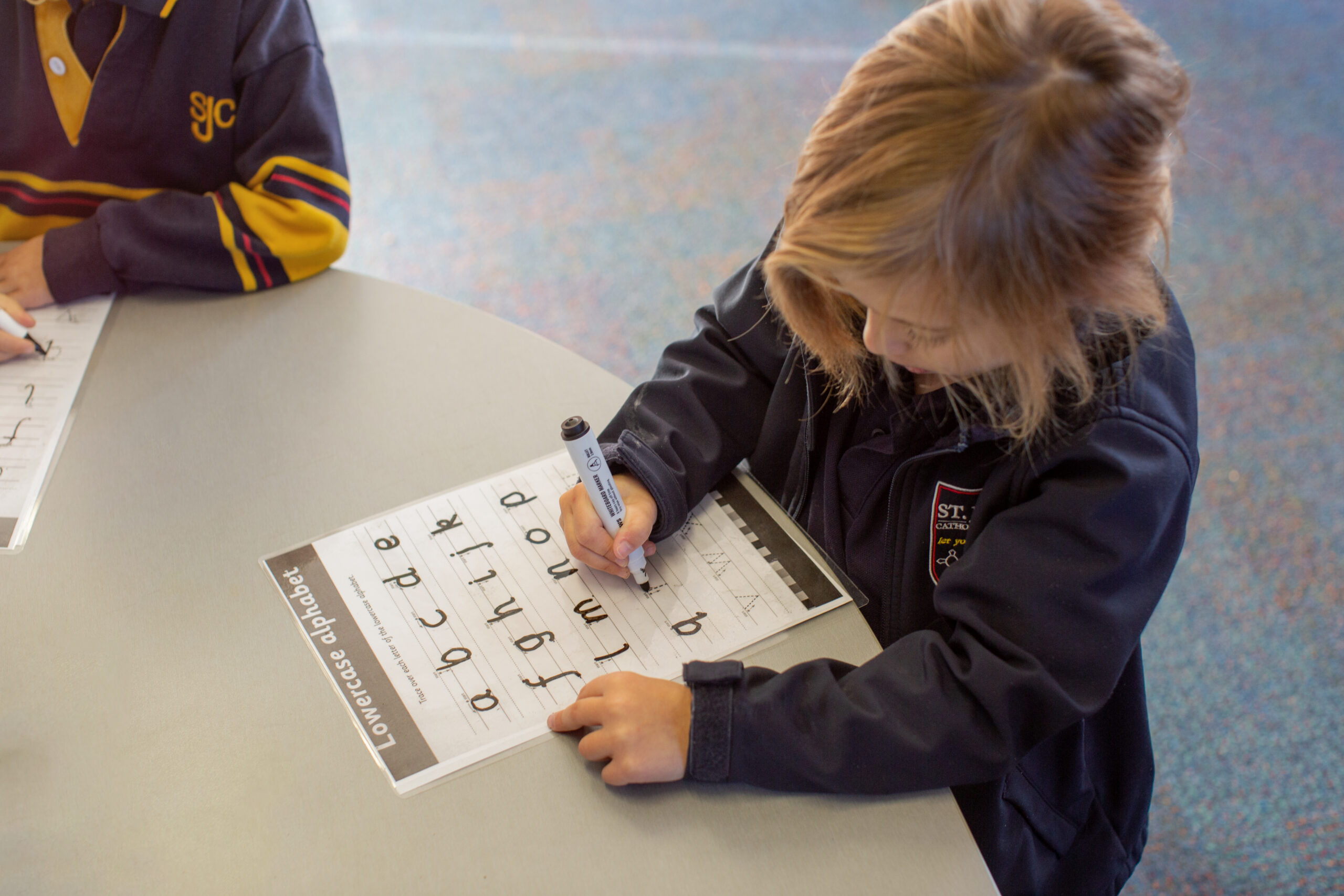From Theory into Action at All System Day July 2024
From Theory into Action at All System Day July 2024

On Monday 22 July, educators across Catholic Education Tasmania (CET) came together for the first time in their respective schools, for a valuable day of learning and collaboration. The objective for this All System Day was to celebrate ‘Theory into Action’ enabling teachers and leaders to bring the theories they had studied about the Science of Learning to life in the classroom.
The day began with a session from Lyn Stone, an educational linguist, author, and founder of Lifelong Literacy. Lyn shared her extensive knowledge in an interactive session, dissecting the Science of Reading and how students learn to read effectively. She emphasised the tools required to ensure students become competent readers.
During the middle portion of the day, teachers heard from Secondary/HaSS Subject Matter Expert, Simon Eade, who presented the vision of the 90% Project alongside Dr. Gerard Gaskin, CET’s Executive Director. This session provided practical tools and strategies for implementing Rosenshine’s 17 Principles of Instruction. The interactive format focused on actionable changes that teachers could apply in their classrooms. Over 80% of participants found the session highly useful, reporting that they had gained valuable insights.
Our Teacher Assistants were also provided the opportunity to attend a live virtual session with Toni Hatten-Roberts. As the Director of COGlearn and the Co-Founder and Executive Director of Education at Mastery Schools Australia, Toni is a leading expert in the Science of Learning. Her sessions were specifically tailored to enhance the skills of Teacher Assistants, providing them with strategies to better support student achievement. The feedback was overwhelmingly positive, with one educator noting, “We found this extremely informative and useful for Teaching Assistants.”
To conclude the day, educators were divided into three groups: Kindergarten, Primary, and Secondary.
The Kindergarten session offered Early Years educators time to explore the scope and sequence of the PreLit resources and plan a content-rich daily review resource for use in their classroom.
The Primary and Secondary sessions, led by Jordan O’Sullivan, Director of Shaping Minds Australia, provided information on enhancing lessons through the use of the Daily Review Maker. Guided by a pre-recorded session from Jordan, our educators honed their skills in ‘Checking For Understanding’ by creating a Daily Review. The practical skills utilised in this workshop can be directly applied in the classroom, allowing teachers to focus on what matters most – teaching.
Overall, CET’s July All System Day was a resounding success, with many educators appreciating the opportunity to collaborate with their colleagues and enhance their understanding of the Science of Learning.
“It was extremely beneficial to work alongside team members, especially during discussions and practical tasks. We also were not restricted by time frames as we could move on when everyone was ready.” – All System Day Participant
The Curriculum and Pedagogy Insight team would like to thank everyone who attended and contributed to the first in-school All System Day. We look forward to delivering the next event in October 2024.
